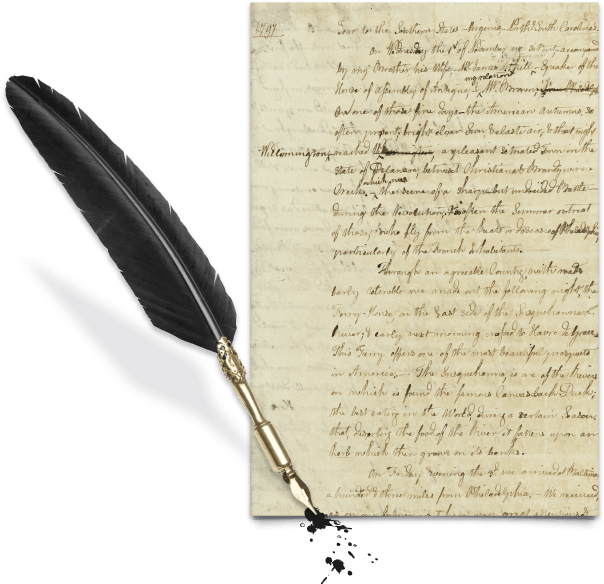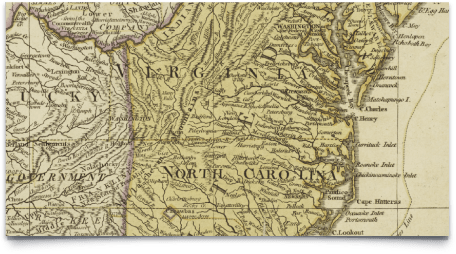Selected people named in this letter
Names in brackets are how Henrietta Liston refers to that person or spells their name in her writing.
Count Antoine-François Andréossy, 1761-1828 ('Andreossi')
Diplomat. French Ambassador to the Ottoman Porte from 1812 to 1814, Andréossy was also Ambassador to Great Britain from 1803 to 1805 and to the Austrian Empire from 1808 to 1809.
Napoleon Bonaparte, 1769-1821 ('Bonaparte')
Soldier and statesman who ruled much of Europe in the early 19th century. He was Emperor of France from 1804 to 1814 and again for the Hundred Days in 1815 until his defeat at Waterloo.
Francis II, 1768-1835 ('Emperor of Austria')
Holy Roman Emperor from 1792 to 1806 and Emperor of Austria from 1804 to 1835.
Frederick William III, 1770-1840 ('King of Prussia')
King of Prussia from 1797 to 1840. Henrietta Liston refers to his 'escape' in her 1813 letter: this refers to Frederick's escape from Berlin to Breslau (now Wroclaw, Poland) possibly due to the threat of French occupation.
Eleanor Hamilton, née Dunn ('Mrs Hamilton of Cockney')
Daughter and co-heir of John Dunn of Tannochside, County Lanark. Eleanor married James Hamilton, 9th of Barns and lived at Cochno House, the Hamilton family seat in West Dumbartonshire.
Grizel Hamilton, baptised 1749, died 1822 ('Mrs Hamilton')
Grizel, daughter of John Hamilton of Barns, married John Hamilton Dundas, of Duddingston. The couple had ten children, of whom four sons died: David Dundas Hamilton (1783-1805), James Dundas Hamilton (1789-1805), John Hamilton Dundas (died 1804), and George Hamilton Dundas, midshipman (died 1811). Henrietta refers to the deaths of Mrs Hamilton's sons in her 1813 letter to Dick Ramage.
Elizabeth Hopkirk, 1754-circa 1831 ('Miss Beth Hopkirk')
The daughter of Elizabeth Smellie and Thomas Hopkirk of Dalbeth, the Merchant Burgess of Glasgow. Elizabeth's father and her brother James corresponded with Robert Liston from 1767. Some of Elizabeth's letters, written between 1807 and 1828, are held in the Liston Papers at the National Library.
Andrej Jakovlevitch Italinski, 1743-1827 ('Chevalier d'Italinski')
Russion diplomat and scholar. Italinski was Russian Ambassador to the Ottoman Empire from 1802 to 1816.
Just Pons Florimond de Faÿ de La Tour-Maubourg, 1781-1837 ('young man')
Diplomat and politician. Son of a Peer of France, La Tour-Maubourg served as Chargé d'affaires to the French Embassy at Constantinople from 1808 to 1812. His sister, Marie-Stéphanie Florimond de Faÿ de La Tour-Maubourg, was married to the French diplomat, Count Andréossy.
Sir Robert Liston, 1742-1836 ('Mr Liston')
Diplomat. Born in Kirkliston, Scotland, Robert Liston became an influential diplomat and was the second person to serve as British Minister to the United States, 1796-1801. Robert's service coincided with a highly significant period in British-American relations. In 1796 he married Henrietta Marchant Liston. In 1811 he was appointed British Ambassador to the Ottoman Empire and took up the post in 1812.
Lady Mary Wortley Montagu, née Lady Mary Pierrepont, baptised 1689, died 1762
Writer. Born in to an aristocratic family, Lady Mary eloped to marry Edward Wortley Montagu (1678-1761) in 1712 and, in 1716, accompanied him on his embassy to Constantinople. During her short stay in Turkey she spent time, like Henrietta Liston did, in Belgrade Village and Constantinople. She also wrote letters describing her travels and Turkish customs. 1763 saw the publication of Wortley Montagu's famous 'The Turkish Embassy Letters'.
Elizabeth Ramage, née Fleming, born 1770 ('Mrs Patrick Ramage')
The daughter of Marion Elizabeth Paxton and Alexander Fleming of Kirkliston, in 1798 Elizabeth married Captain Patrick Ramage (1767-1807) of the East India Company, the nephew of Robert Liston, in 1798.
Alexander Liston Ramage, 1775-1814
Alexander, Lyon Clerk Depute, known as 'Sandy', was one of Robert Liston's five nephews by his sister Henrietta and her husband Alexander Ramage, Captain, Port of Leith. In 1797 he became Second Lieutenant in the Midlothian Royal Artillery, and was promoted to First Lieutenant in 1801.
Dick Ramage, 1777-1815
The nephew of Robert Liston, Dick and his siblings managed the Listons' Millburn Tower estate on their behalf while they were away in Constantinople. He died in Lisbon.
Sir Robert Thomas Wilson, 1777-1849
Army officer and colonial governor. Assuming the rank of Brigadier-General in the British army on 26 March 1812, Wilson was given special instructions to assist in the peace negotiations between Turkey and Russia, and accompanied Robert Liston on his embassy to the Sublime Porte. Wilson was a friend of the Listons and kept a journal of his voyage with them to Constantinople. The journal was posthumously published in 1861 as 'Private Diary of Travels'. Wilson was Governor of Gibraltar from 1842 to 1849.
[Library reference for this letter: MS.5640, ff.55-58]

